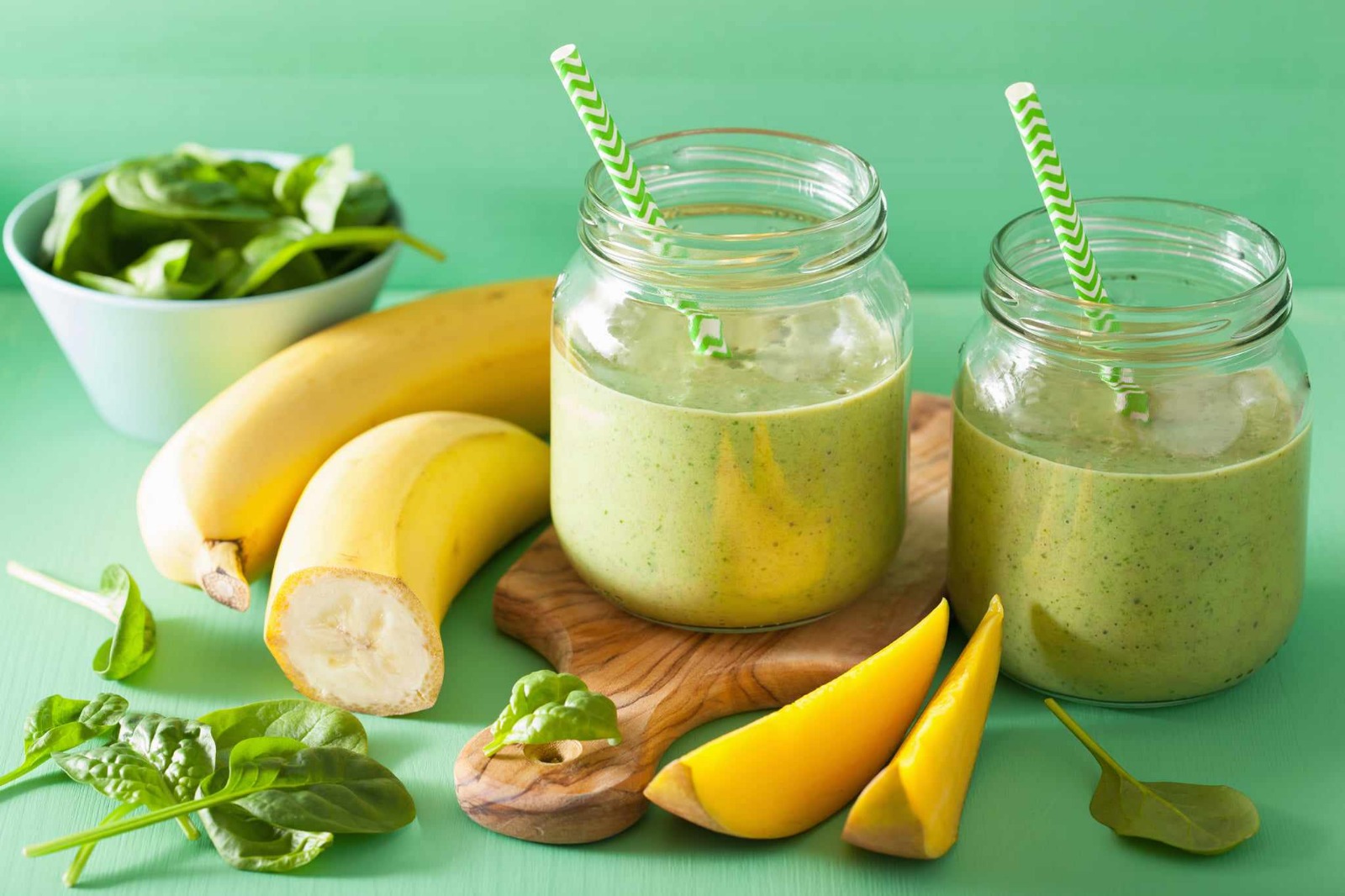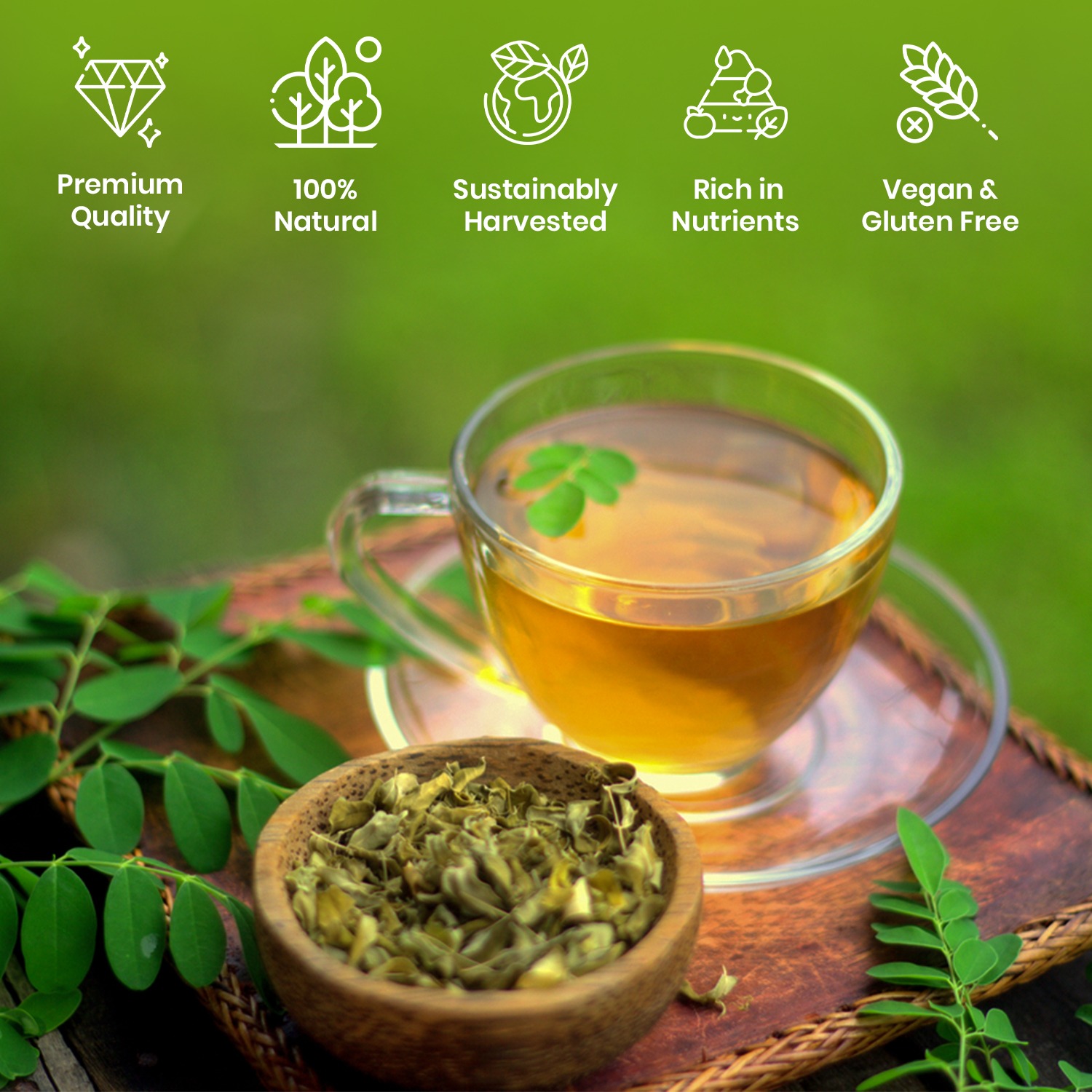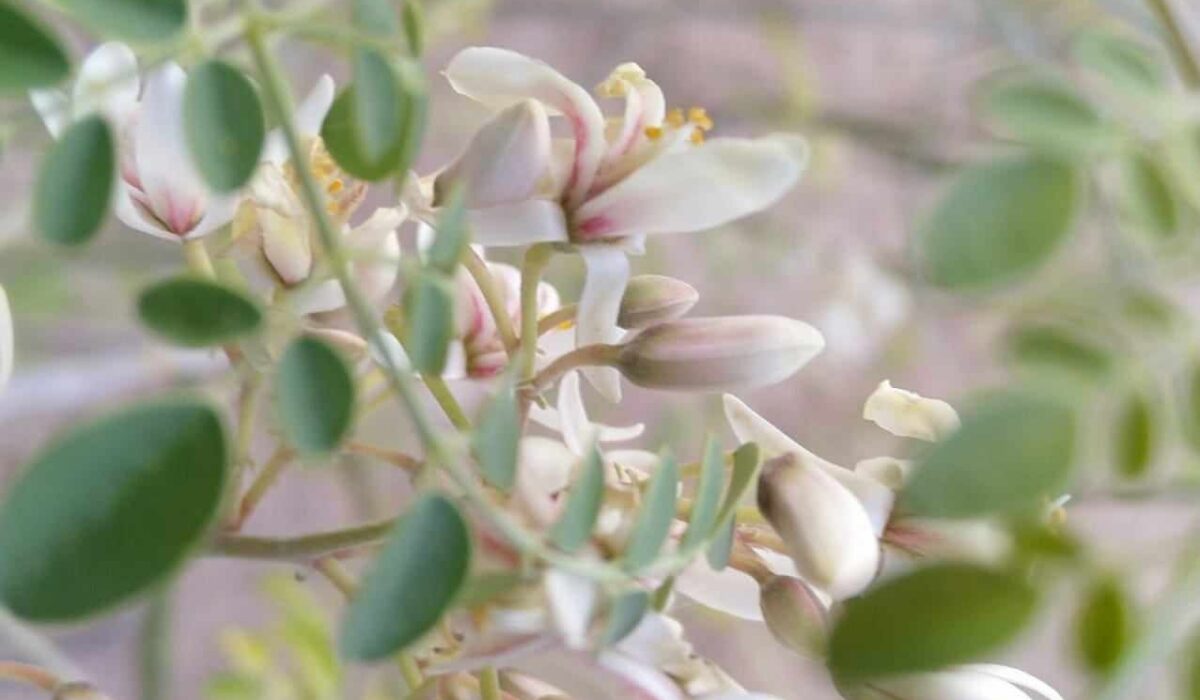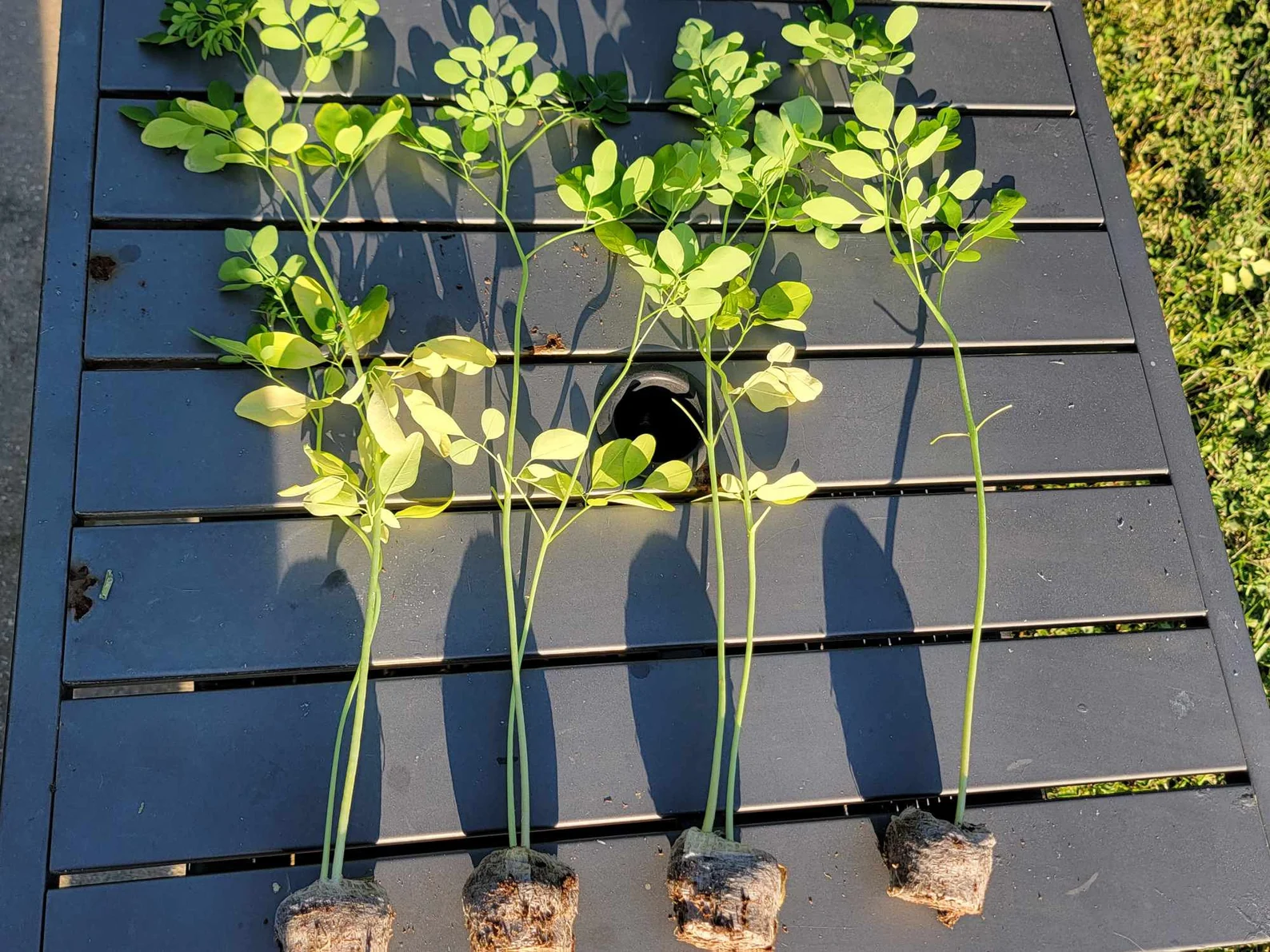Are Moringa Flowers Edible?
Moringa flowers are a versatile and nutritious ingredient that are becoming increasingly popular in the culinary world. Moringa, also known as the “Miracle Tree”, is a highly nutritious plant that is widely cultivated for its edible leaves, seeds, and bark. In addition to its well-known health benefits, Moringa flowers are also edible and have a unique flavor and texture that make them a sought-after ingredient in many dishes.
The purpose of this article is to provide a comprehensive overview of the edibility of Moringa flowers. We will examine the nutritional value of Moringa flowers, the safety considerations associated with their consumption, and the common uses in cooking. We will also discuss the health benefits that can be derived from eating Moringa flowers, including their antioxidant and anti-inflammatory properties, improved digestion, and immune system boost.
Whether you are a seasoned cook or just starting to experiment with new ingredients, this article will provide valuable insights into the world of Moringa flowers and the many ways they can be incorporated into your diet.

Edibility of Moringa Flowers
Moringa flowers are a nutritious and flavorful addition to any diet. They are considered safe for consumption and are commonly used in cooking for their unique taste and texture.
A. Nutritional Value of Moringa Flowers
Moringa flowers are a highly nutritious ingredient that is rich in vitamins, minerals, and essential nutrients. They are a good source of vitamins A and C, which are important for maintaining good vision and healthy skin, respectively.
Additionally, Moringa flowers are a rich source of calcium, which is essential for maintaining strong bones and teeth. They also contain iron, which is crucial for the production of hemoglobin, the protein in red blood cells that carries oxygen to the body’s tissues.
Moringa flowers are also a good source of protein, which is important for building and repairing tissues in the body. This makes them a valuable ingredient for vegetarians and vegans who may struggle to find enough protein in their diets. The protein in Moringa flowers is also of high quality, as it contains all of the essential amino acids the body needs to function properly.
In addition to these essential nutrients, Moringa flowers also contain a range of other beneficial compounds, including antioxidants, anti-inflammatory agents, and other phytochemicals. These compounds help to protect the body from disease and support overall health.
B. Safety Considerations
While Moringa flowers are considered safe for consumption, there are a few safety considerations that should be taken into account. Firstly, as with any new food, it is always best to introduce it into your diet gradually and in small amounts. This will help you to determine if you have any adverse reactions to the food and will also allow you to get used to its unique flavor and texture.
Additionally, it is important to ensure that the Moringa flowers you consume are of high quality and have been properly grown and processed. Some Moringa products may contain harmful chemicals or contaminants if they are not grown or processed properly, so it is important to source your Moringa flowers from a reputable supplier.
Finally, people who have allergies or sensitivities to plants in the Moringaceae family should exercise caution when consuming Moringa flowers. If you experience any symptoms such as itching, hives, or difficulty breathing after consuming Moringa flowers, seek medical attention immediately.
Moringa flowers are generally considered safe for consumption, but it is important to take the necessary safety precautions to ensure that you are getting the best quality product. As with any new food, it is always best to start slow and listen to your body. If you experience any adverse reactions, seek medical attention immediately.

C. Common Uses in Cooking
Moringa flowers are a versatile ingredient that can be used in a variety of dishes. They have a slightly bitter flavor that pairs well with other strong flavors and spices, making them a valuable ingredient in many different cuisines.
Some of the most common uses for Moringa flowers in cooking include:
- Soups and stews
- Sauces and gravies
- Teas and infusions
- Side dishes
Moringa flowers are a versatile and flavorful ingredient that can be easily incorporated into a variety of dishes. Whether you are looking for a new flavor for your favorite soup or stew, or a nutritious addition to your sauces and gravies, Moringa flowers are an excellent choice. Just remember to start slow and experiment with small amounts to find the right balance of flavor and texture for your taste buds.

Culinary Applications of Moringa Flowers
Moringa flowers are a unique and flavorful ingredient that can add a new dimension to your cooking. With a slightly bitter taste, they are particularly well-suited for dishes with bold spices and flavors. Here are a few culinary applications of Moringa flowers that you can try in your kitchen.
- Soups and stews – Moringa flowers can be added to soups and stews to provide a unique flavor and texture. They are particularly well-suited for dishes with bold spices, such as curries and chili, and are a great way to add nutrition to these hearty meals.
- Sauces and gravies – Moringa flowers can be used to add flavor and nutrition to sauces and gravies. They can also be pureed and used as a thickener for sauces and gravies. Adding depth and richness to your dishes.
- Teas and infusions – Moringa flowers can be dried and used to make tea or infusions. The tea has a slightly bitter flavor and is believed to have health-promoting properties. Whether you are looking for a caffeine-free alternative to coffee or simply want to try something new, Moringa flower tea is a great option.
- Side dishes – Moringa flowers can be sautéed, stir-fried, or steamed and served as a side dish. They pair well with other strong-flavored ingredients, such as garlic, ginger, and chili. Making them a great way to add flavor and nutrition to your meals.

Health Benefits
Moringa flowers are not only a flavorful ingredient for your cooking, but they also have a number of health benefits. From providing essential vitamins and minerals to boosting your immune system, Moringa flowers are a nutritious addition to your diet.
- Rich in vitamins and minerals – Moringa flowers are a rich source of vitamins and minerals, including vitamin C, calcium, and iron. These nutrients are essential for maintaining good health and can help support your immune system, promote healthy skin and hair, and support healthy bones and teeth.
- Anti-inflammatory properties – Moringa flowers are believed to have anti-inflammatory properties. Making them a great option for individuals with conditions such as arthritis, gout, and other inflammatory disorders.
- Antioxidant properties – Moringa flowers contain antioxidants that help protect your cells from damage caused by free radicals. Antioxidants can help prevent or slow down the aging process and may help reduce the risk of certain chronic diseases. Such as heart disease, cancer, and type 2 diabetes.
- Immune-boosting properties – Moringa flowers are believed to have immune-boosting properties, helping to protect your body from illness and infection. They are a great option for individuals looking to support their immune system, especially during cold and flu season.
Moringa flowers are a nutritious and flavorful ingredient that can provide a number of health benefits. Whether you are looking to boost your immune system, support healthy skin and hair. Or simply add a new dimension to your cooking, Moringa flowers are an excellent choice. Just remember to start slow and listen to your body. Always consult with your healthcare provider before incorporating new foods into your diet.

Conclusion
In this article, we explored the edibility of Moringa flowers, covering their flavor, texture, and nutritional content. We also discussed the various culinary applications of Moringa flowers and the health benefits they offer. Moringa flowers are a unique and flavorful ingredient that can add a new dimension to your cooking. They are a rich source of vitamins and minerals, and have anti-inflammatory, antioxidant, and immune-boosting properties. Whether you are looking to try something new or simply want to add a nutritious ingredient to your diet, Moringa flowers are definitely worth considering.
While the health benefits of Moringa flowers are promising, it is always important to consult with a healthcare provider before incorporating new foods into your diet. For those interested in exploring the benefits of Moringa flowers further, a review of credible sources. Such as the USDA National Nutrient Database, Journal of Ethnopharmacology, and the World Health Organization, can provide valuable information.
List of Credible Sources
- Estimation of total phenolic content, in-vitro antioxidant and anti-inflammatory activity of flowers of Moringa oleifera – PMC (nih.gov)
- Elemental composition, total fatty acids, soluble sugar content and essential oils of flowers and leaves of Moringa oleifera cultivated in Southern Portugal – PMC (nih.gov)
- Use of Moringa oleifera Flower Pod Extract as Natural Preservative and Development of SCAR Marker for Its DNA Based Identification – PMC (nih.gov)
Moringa With Barry stores offer a variety of moringa products. These include: Moringa Powder, Moringa Tea, Moringa Capsules and Moringa Oil.
Read more:
Moringa Alfredo: A Nutritious Twist on a Classic Pasta Dish
Moringa Brownies: A Delicious and Healthy Chocolate Treat
Moringa Chili: Adding a Nutrient Boost to a Hearty Favorite
Moringa Coconut Curry: A Flavorful and Nourishing Vegan Delight
Moringa Green Smoothie: Power Up Your Day with a Nutrient-Packed Blend




